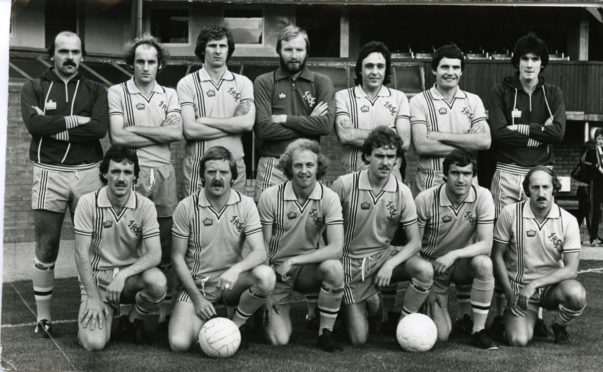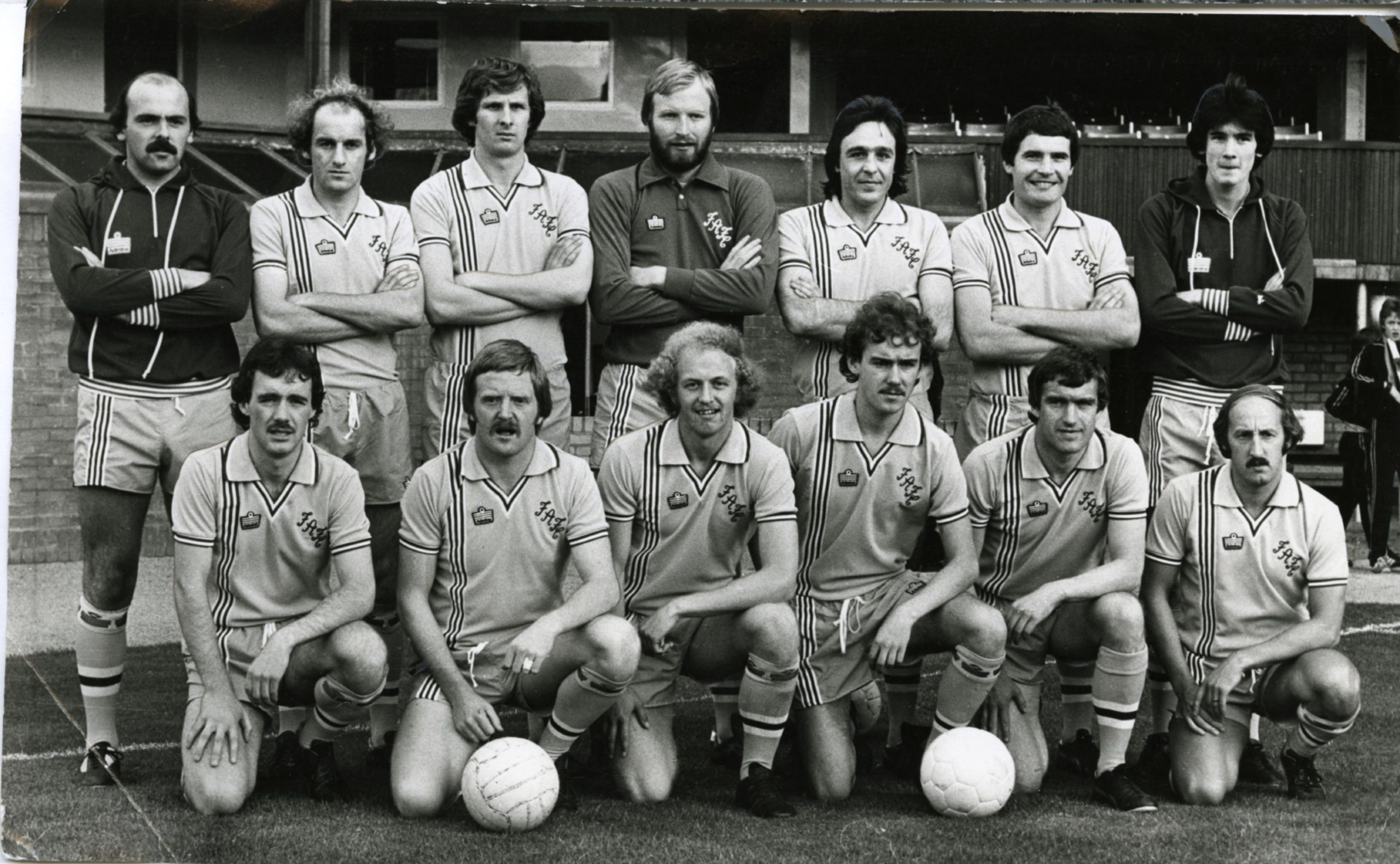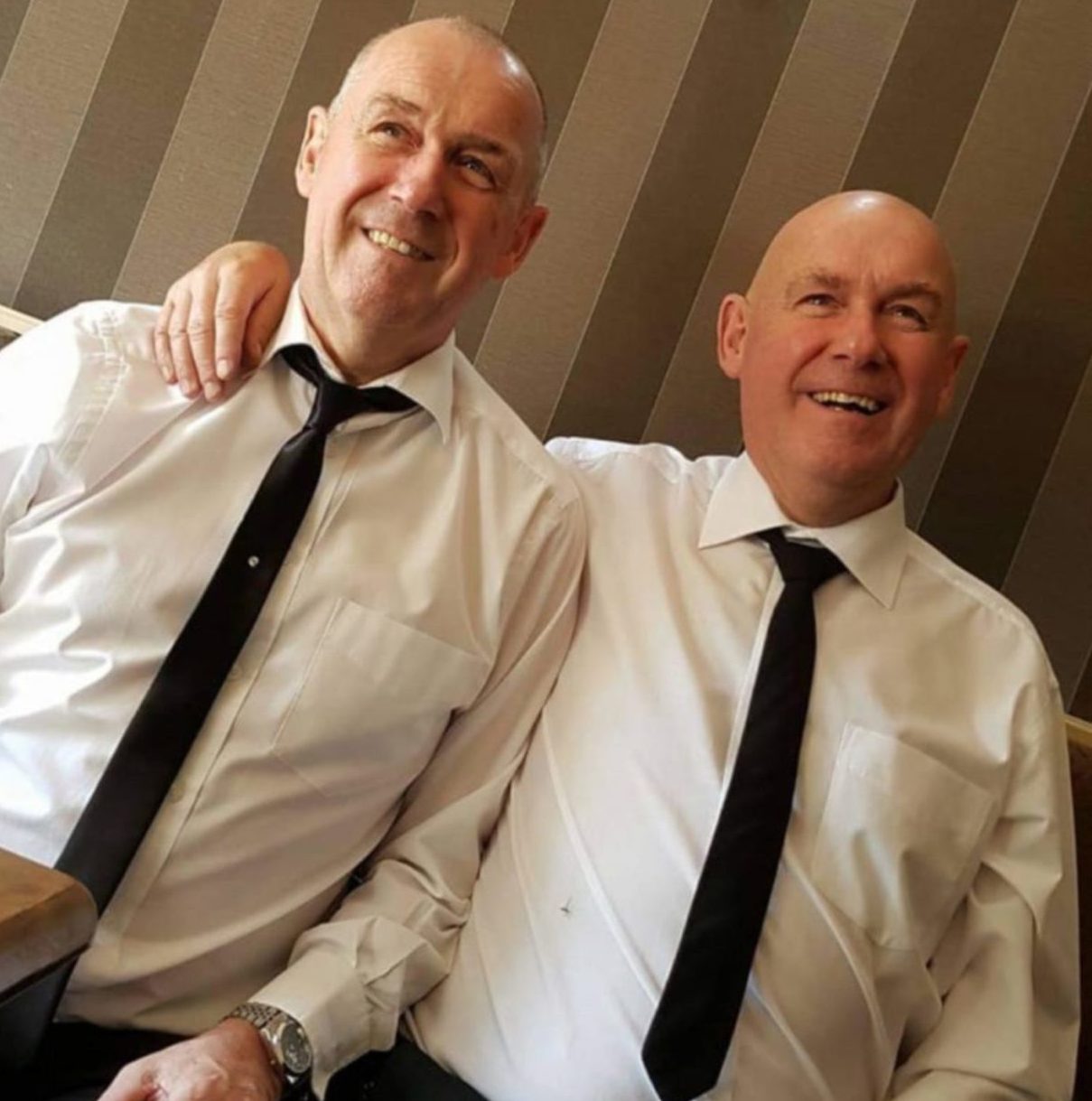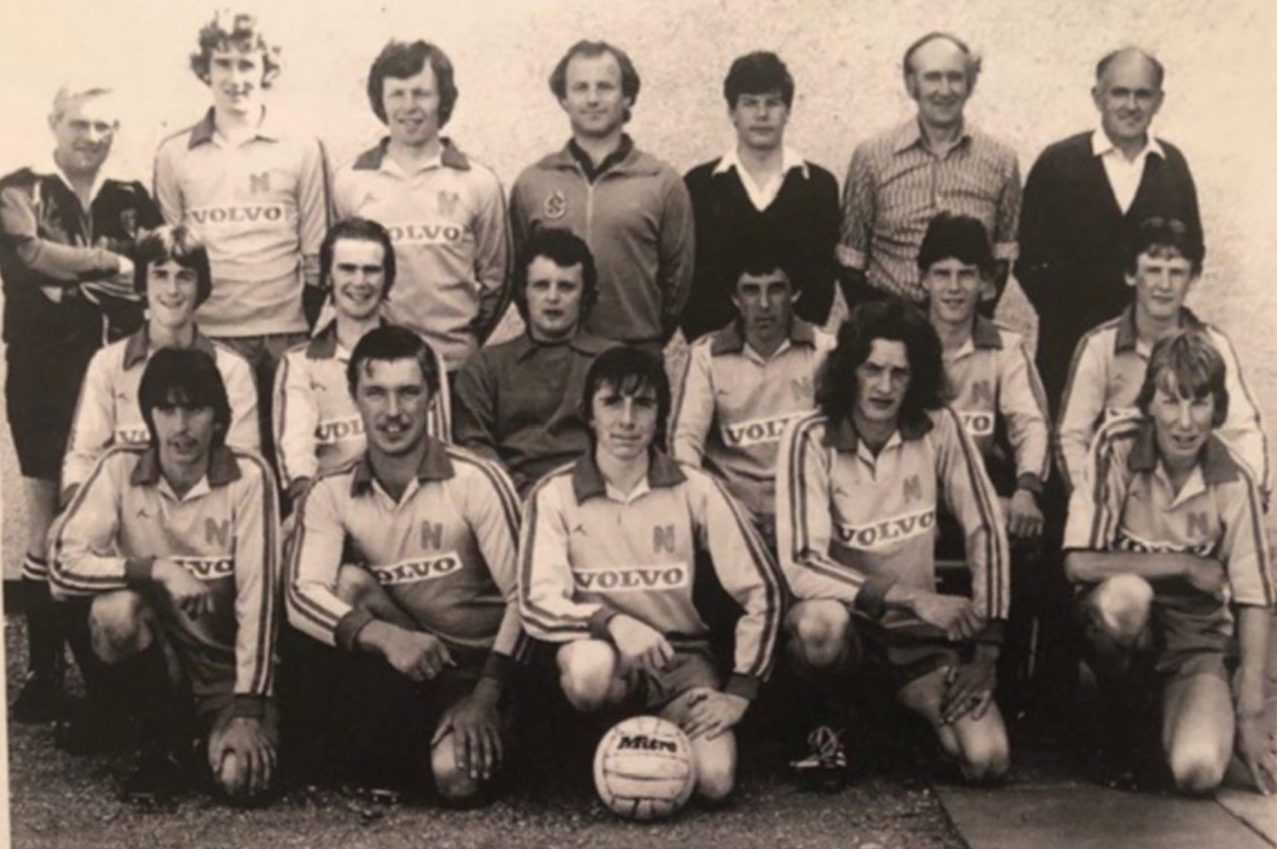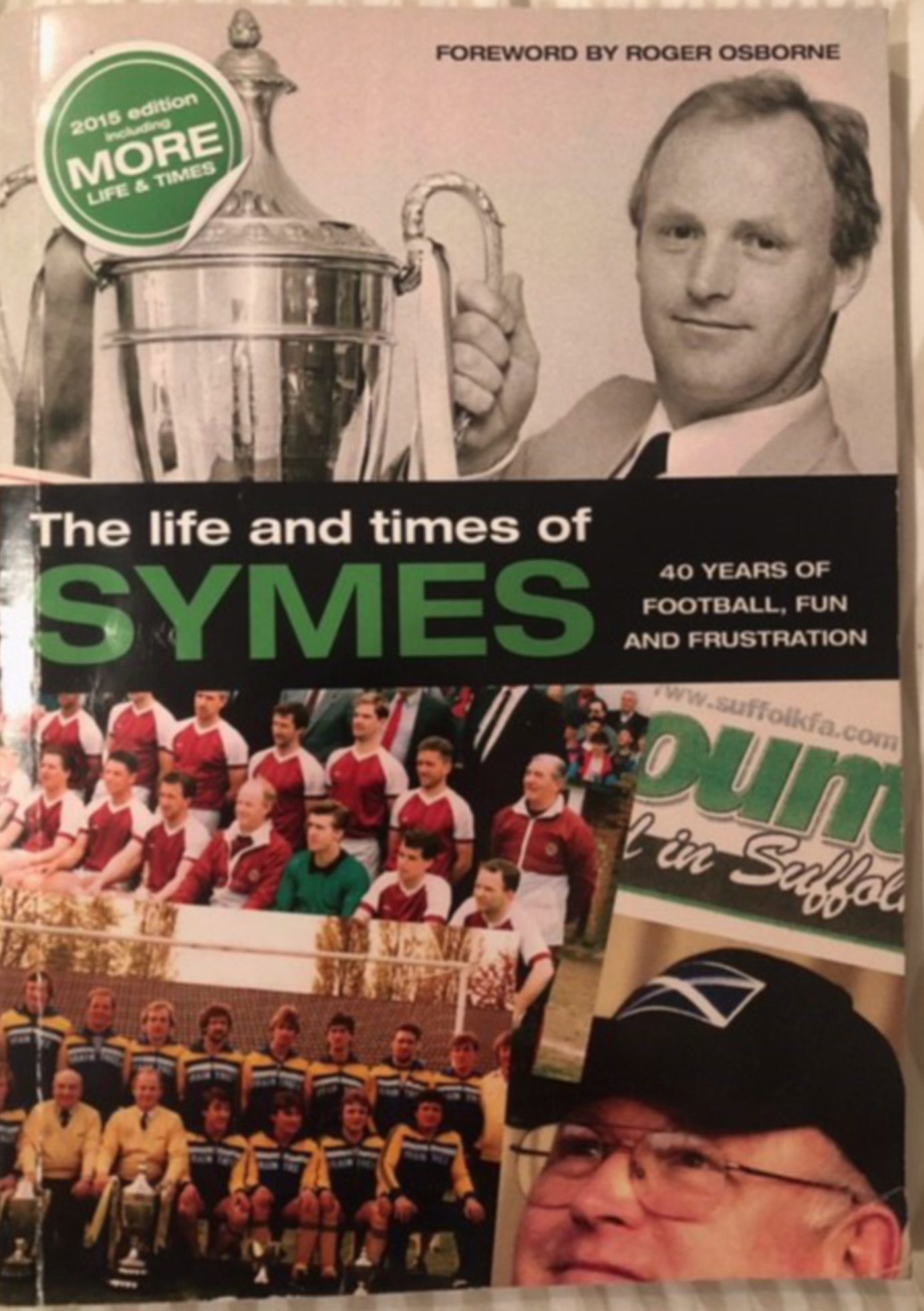The sad news reached me this week that Steven Graham had died after a battle with cancer.
Steven (63) had two spells with Forfar Athletic, and one each with Brechin City and Cowdenbeath in a 10-year spell from the late 1970s.
Devastating news that Dundonian Steven Graham who played @ForfarAthletic @BrechinCityFC @CowdenbeathFC in addition to Auchterhouse amateurs, has lost his brave battle with cancer. RIP.
— John S. Brown (@pelebroon51) February 15, 2021
He was very well-known locally despite having lived the last 30 years in Derby in England, and, indeed, often came back to Dundee for visits.
Steven attended Gillburn Primary School and Kirkton High School in the city, and was part of one of the great St Columba’s BC teams.
His early amateur days were spent with Auchterhouse (Saturday) and Sidlaw (Sunday).
Speaking of his football prowess, heartbroken twin brother Malcolm said: “We knew Steven was a very special player early on.
“When we were in the 42nd BB together, along with Billy ‘Seagull’ Gallagher (who also later signed for Forfar), we won the National Five-A-Sides competition, beating a complete team of Rangers ‘S’ signings in the final.
“Steven was brilliant that day.
“Then, along with Grant McLean at Auchterhouse, the pair scored well over 100 goals between them in one season.
“Steven jokingly often reminded Grant that he netted 50-odd goals to Grant’s ‘mere’ 40-odd.
“His form that season alerted Forfar, and Archie Knox signed him – and so started his senior career which would span around a decade.”
Steven is survived by wife Sandra, son Scott and daughter Laura.
The January 2 edition of BwB featured the names of many teams who had early membership of the old Dundee Sunday Welfare FA.
We highlighted the fact the league mushroomed over a short period of time from just one division to a very vibrant five.
Grant Howitt got in touch to say he played for Newport Sports Centre in Division One in the late 1970s/early 1980s.
Grant, formerly a resident of the Fife town, now lives in Guernsey (since 1988), and continued: There were some very decent teams around. We had some battles – and I mean real battles – playing against the likes of Club Romano, who I didn’t see on your list of teams.
“Many of the other club names are familiar.
“Chris Symes, who was manager of the Waterstones Crook Sports Centre in Newport, was a great lad, and he ran the team.
“Chris, who was a coach with Arbroath FC for a while, moved back down south and became manager of numerous non-league teams.
“He eventually wrote a book about his (non-league) career in football.
“Chris also tried to set up a new junior team to be based in Newport, but it never happened.
“I think it was to be called North Fife.”
Grant told of his personal involvement with the side, continuing: “I was certainly very young when I first played in the Welfare League and I was only 15 in 1978.
“A couple of lads in the photo (above) were a year younger than me. So I think it is more likely to be around 1979/1980.
“We did have a very young team when we first joined the league as most of these lads were about same age as me, with a couple a few years older.
“All players lived locally, mostly in Newport, but also in the likes of Wormit and Gauldry, with a few from Tayport in later years.
“It was hard going at first, although, eventually, we became quite decent and certainly competed in games.
“Quite a few of the players still live in and around Newport, although, at least, one is sadly no longer with us.
“My brother Andy is in the pic in non-playing gear. He was probably too young to play then, but did play a few times in future years before he left Newport at quite a young age.
“He now lives in Melbourne.
“Norrie Thompson, who stayed in Newport, was a referee in the league, and brothers Ian and Eric Gray assisted Chris Symes, with Eric taking over as manager, if I recall correctly, when Chris left.
“Alan Gray, who is in the photo, also played for Arbroath for a short while. He told me he has kept in touch with Chris, who comes up to Scotland regularly as his wife (from Arbroath, I think) still has family in the area.”
Grant went on: “Chris had left the town around 1980 to take over running of a sports centre in Colchester and became a manager of a local non-league team down there.
“In the early 1980s, the team went down to Colchester, where Chris was living/working, for a lads weekend, and we played against the non-league team he managed (Halstead Town if I recall correctly).
“Despite much alcohol being drunk over the weekend, we managed to beat them.”
Dundee and their fans were recently left frustrated after their Scottish Championship fixture with Ayr United at Dens Park was postponed for the third time (that match will now be played this coming Tuesday).
However, that was nothing to what two other Scottish clubs endured 42 years ago.
The bad winter of 1979 saw the Scottish Cup second-round clash between Inverness Thistle and Falkirk, managed by Billy Little, postponed no fewer than 29 times.
The original date for the game was January 6, but the clubs had to wait just under seven weeks for the Highland League club’s Kingsmill Park to eventually be declared playable on February 22.
https://www.eveningtelegraph.co.uk/fp/johan-cruyff-lochee-united-dave-mcnicoll-blether-with-brown-column/
When the match finally took place, four first-half goals from McRoberts, Brown, McCallan and Perry helped Falkirk seal a 4-0 win and their spot in the third round against Dundee.
However, that tie does not take the biscuit, as the most called-off game in Scotland (and possibly Britain) happened in 1963 when Airdrie and Stranraer endured 33 postponements.
For the Diamonds, it was 34th time lucky as they ran out 3-0 winners at their Broomfield ground.
That year, ironically, also saw the formation of the Pools Panel, a body which still sits in judgment today.
https://www.eveningtelegraph.co.uk/fp/blether-dundee-united-signing-who-paid-transfer-fee-himself-premierland-boxing-memories-and-kenny-dicks-scouting-reports/
